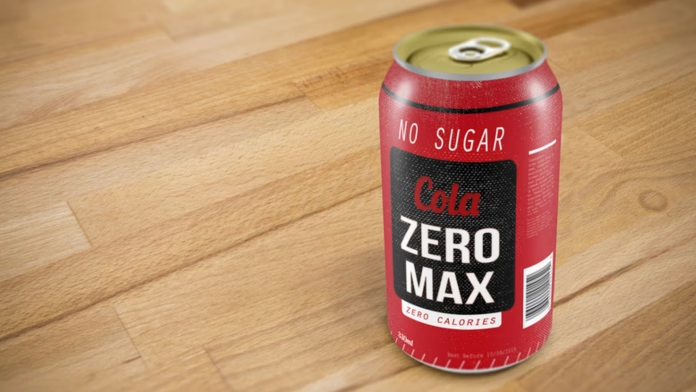Zero-calorie beverages have gained tremendous popularity in recent years, driven by the rising health-consciousness of consumers and the desire to maintain a balanced diet. These drinks promise to provide a refreshing experience without adding any extra calories to one’s daily intake. However, it is essential to question whether they truly live up to their claims and whether they offer more benefits than potential drawbacks. This article aims to delve into the world of zero-calorie beverages, exploring their allure, benefits and drawbacks. By understanding these aspects, health-savvy consumers can make informed choices that align with their dietary goals and overall well-being.
The Allure of Zero-Calorie Beverages
Zero-calorie beverages have a significant appeal due to their promise of guilt-free indulgence. With the increasing concern over obesity and diabetes worldwide, including India, consumers are actively seeking ways to reduce their sugar intake without sacrificing taste. Zero-calorie drinks, often sweetened with artificial sweeteners or natural sugar substitutes, claim to offer the same satisfying flavor as regular beverages but without the added calories.
Moreover, zero-calorie beverages cater to the growing health-conscious population in India, providing a convenient and easy way to stay on track with their diet without compromising on taste. These drinks often become a go-to choice for individuals who want to quench their thirst while maintaining a healthy lifestyle.
The Benefits of Zero-Calorie Beverages
- Weight Management: One of the primary advantages of zero-calorie beverages is their potential to aid in weight management. By replacing high-calorie, sugar-laden drinks with zero-calorie alternatives, individuals can reduce their overall calorie intake, which may help in maintaining or losing weight. For those striving to shed extra pounds or control their weight, zero-calorie beverages can be a valuable tool in their dietary arsenal.
- Blood Sugar Control: Individuals with diabetes or those at risk of developing the condition often need to monitor their sugar intake closely. Zero-calorie beverages provide a safer option for these individuals, as they do not cause a spike in blood sugar levels. By consuming these drinks, individuals can enjoy a refreshing beverage without negatively impacting their blood sugar levels.
- Dental Health: Regular consumption of sugary beverages can lead to tooth decay and other dental issues. Zero-calorie beverages, devoid of sugar, do not contribute to these problems, making them a suitable choice for maintaining dental health. By opting for zero-calorie alternatives, individuals can protect their teeth while enjoying a satisfying beverage.
The Drawbacks of Zero-Calorie Beverages
- Artificial Sweeteners: Many zero-calorie beverages contain artificial sweeteners, such as aspartame, sucralose, and saccharin, to provide the desired flavor without the added calories. While these sweeteners are approved for use by regulatory authorities, concerns have been raised about their long-term safety. Some studies suggest a potential link between artificial sweeteners and adverse health effects. Additionally, certain individuals may experience side effects such as headaches or digestive issues after consuming artificial sweeteners. It is important for consumers to be aware of these potential risks and make an informed decision based on their personal health considerations.
- Overconsumption: The absence of calories in zero-calorie beverages can lead some people to overconsume them, mistakenly believing that they can drink as much as they want without any consequences. However, excessive consumption of any beverage, even those with no calories, can lead to an imbalance in one’s diet and contribute to other health issues. It is crucial for individuals to exercise moderation and ensure a well-rounded diet that includes a variety of nutrients.
- Taste: Zero-calorie beverages strive to replicate the taste of their sugary counterparts, but some consumers may find the flavor to be lacking or artificial. This can make it difficult for individuals to fully enjoy these drinks as a satisfying alternative to regular beverages. Taste preferences vary among individuals, and it is important to find a zero-calorie beverage that suits one’s palate to fully embrace its benefits.
- Potential Impact on Appetite: Research suggests that consuming zero-calorie beverages may lead to an increased appetite. The body may not register artificial sweeteners as a source of energy, potentially causing individuals to experience hunger pangs and cravings, which can ultimately lead to overeating and weight gain. This phenomenon can undermine the initial goal of choosing a zero-calorie beverage for weight management. It is essential to be mindful of the potential impact on appetite and adjust consumption accordingly.
Final Thoughts:
The decision to consume zero-calorie beverages should be based on personal preference, health goals, and a comprehensive understanding of the potential benefits, drawbacks, and environmental impact. These beverages can be a suitable choice for individuals looking to reduce their sugar intake, manage their weight, or maintain dental health. However, it is crucial to be mindful of the potential risks associated with artificial sweeteners, the need for moderation in consumption, and the impact on appetite. By staying informed and making conscious choices, health-conscious individuals can strike a balance between personal well-being and environmental responsibility.





